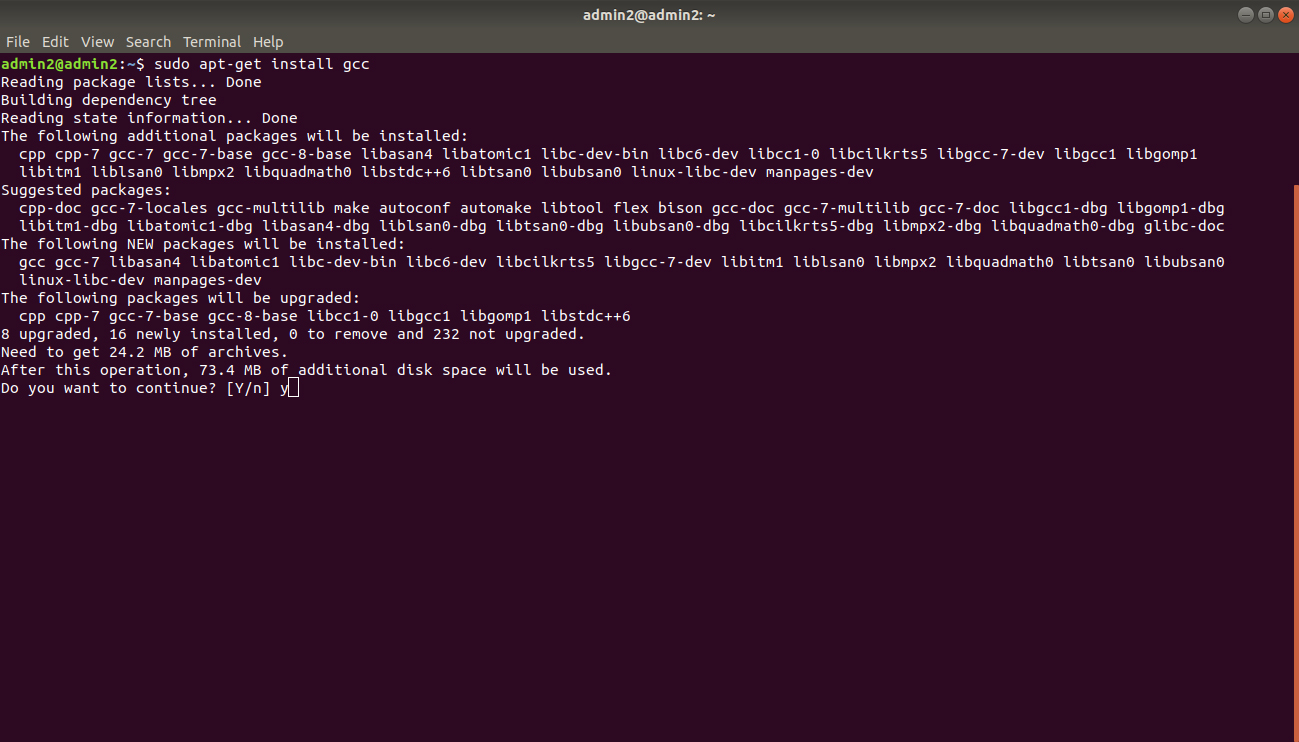
If you are interested in building more compilers available in the GCC collection modify the –enable-languages configure option. The above command instructs the configure app to add a prefix to all the resulting executable programs, so for example if you want to invoke GCC 10.1.0 you will write gcc-10.1, the gcc command will invoke Apple’s version of clang. configure -prefix=/usr/local/gcc-10.1.0 \ 5 -enable-checking=release \ 6 -enable-languages=c,c++,fortran \ 7 -disable-multilib \ 8 -with-sysroot=/Library/Developer/CommandLineTools/SDKs/MacOSX.sdk \ 9 -program-suffix=-10.1 Be prepared that this could take some time … Since I’m interested only in the C, C++ and Fortran compilers, this is the configure command I’ve used on my machine: 1 cd ~/gcc_all/gcc-10.1.0 2 mkdir build & cd build 3 4. The above four prerequisites will be built during the GCC build. GCC 10 depends on a couple of other libraries (GSL, GMP, MPFR and ISL) that can be downloaded with: 1 cd gcc-10.1.0 2 contrib/download_prerequisites Next, we can download and extract the latest stable version of GCC: 1 curl -L | tar xf. Let’s start by creating a working folder: 1 cd ~ 2 mkdir gcc_all & cd gcc_all Which will guide through the installation process.

If you don’t have the Command Line Tools installed, open a Terminal and write: 1 xcode-select -install At the time of this writing Apple’s Command Line Tools maps the gcc and g++ to clang and clang++. In the remaining of this article I will assume that you have installed the Command Line Tools for Xcode.

In order to compile GCC from sources you will need a working C++ compiler.
Mac python install gcc code#
Testing your code with two different compilers is always a good idea.īuilding GCC 10 from sources could take some time, in my case it took a few hours on a MacBook Air with a 16GB of RAM. Another reason to have the latest stable version of GCC on your macOS is that it provides you with an alternative C and C++ compiler. you will need gfortran that comes with GCC. If you are interested in a modern Fortran compiler, e.g. If you are using Catalina (macOS 10.15) check this tutorial.Ĭlang, the default compiler for macOS, supports only C, C++, Objective-C and Objective-C++. The instructions from this tutorial were tested with latest version of Command Line Tools and Mojave (macOS 10.14).
Mac python install gcc how to#
In this tutorial, I will show you how to compile from source and install the current stable version of GCC on your macOS computer.

Solarian Programmer My programming ramblings Home Archives Contact Privacy Compiling GCC 10 on macOS Mojave Posted on by Paul


 0 kommentar(er)
0 kommentar(er)
